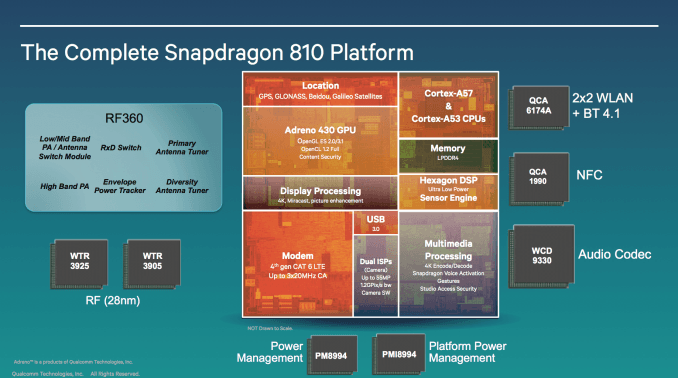Oh, and before you say that I'm against innovation, no I'm not, but progress for progresses sake is not progress at all. There's nothing wrong with pushing the boundaries, but these companies board of directors insist on high profits, and so the "progress" wheel starts turning, but for no other real reason, not because they really want to, or we would already be working with Desktop class chips in our phones. There is just no profit in it to give the masses the best and greatest upfront, but much more in delaying and stringing it our with these pointless incremental upgrades. That's my opinion anyways. The 2 year old tech I have in my phone is still doing wonders, but when they can make a phone that doubles as my PC, then, and only then will I be impressed, not this octa core ARM crap.
Please explain to me and to our viewing audience how you are ever going to replace a desktop PC with a mobile phone, in particular the monitor? Sure, I can see a mobile phone CPU having the equivalent horsepower of a current desktop CPU 3-5 years down the road. But how do you package a 21.5", 23.6", or even a 27" 1920x1080 desktop monitor in a mobile space? The only way I can see it is with some type of video projection system. Maybe camping sites or even internet cafes can host the huge whitescreens or (more expensively actual huge monitors) and people can plug in their mobile phones? That's the only way I can visualize your dream having any meaning. But you lose some of the mobility if you have to go to specific places to get your viewing functionality. So this begs the question, if you can't enjoy an UHD 4k Blu-Ray movie in a mobile device, or an Unreal Engine 4 video game at 1920x1080 resolution on a huge color monitor what is point of the phone being able to push that many pixels to begin with? I refuse to watch movies on an anything less than what I have too and as of the past 3+ years that device has been no less than 21.5" large. Is there anybody who actually watches HD movies on a tiny cellphone and enjoys it? My cellphone has proved itself to be more handy than I thought it could be even a year ago. But it still can't and probably never will be able to replace my desktop monitors. Sure, the huge dinosaur boxes are becoming extinct thanks to Intels NUCs and other SFF devices. But the joy and benefits of a huge desktop screen aren't as easily replaced by a mobile device. Unless, they literally start making 21.5" tablets as a standard screen size.
I also think your wrong when you say that the people who constantly push technology innovation don't do it because they really want to is not true. I think passion is the only thing that can truly drive innovation. You have to be pretty smart to do what these people do.
I also don't think there is a conspiracy to dole out technological innovation. The pace of technological innovation has dropped to a much slower pace than in the past 20 years because man is at the very boundaries of technological innovation. We don't have 1TB Blu-Ray discs yet because they don't know how to make them. They have an idea of how to make them. But those ideas might not translate into reality when the time comes and so they have to tweak and refine their exact approach and that takes time. Competition also drives innovation. If Sony could release a 1TB Blu-Ray disc today they would be stupid not to capitalize on it and get it to market to make their millions. Someone else might 'stumble' onto a technology which gives us 5TB Blu-Ray discs and cause Sonys 1TB BD-R discs to become obsolete instantly. I don't think anybody wants to sit around and take that chance.
The beauty of a free market is that you don't have to purchase anything you don't want too. Well except Obamacare. If you think that Intel and Seagate and Samsung are doleing there technology out solely to bleed you dry you don't have to buy it. See the beauty?
